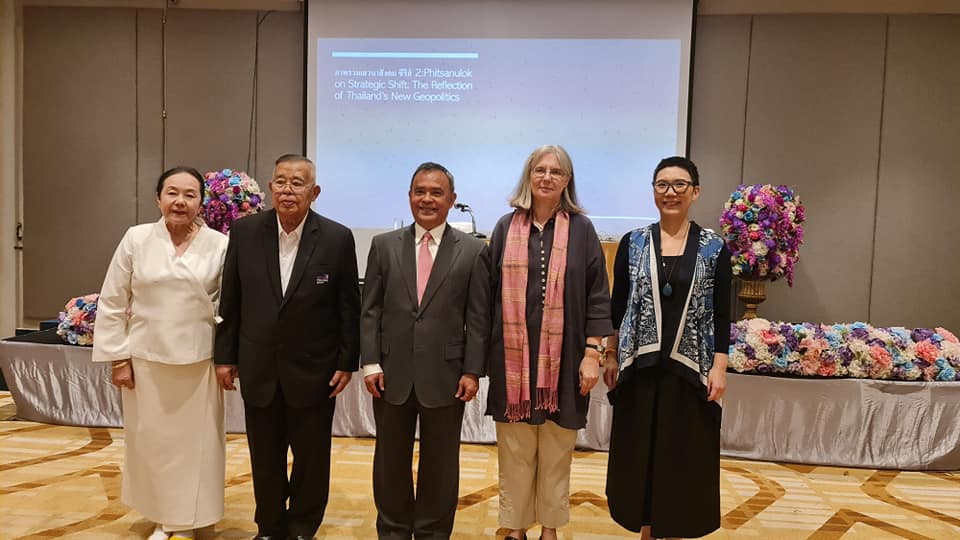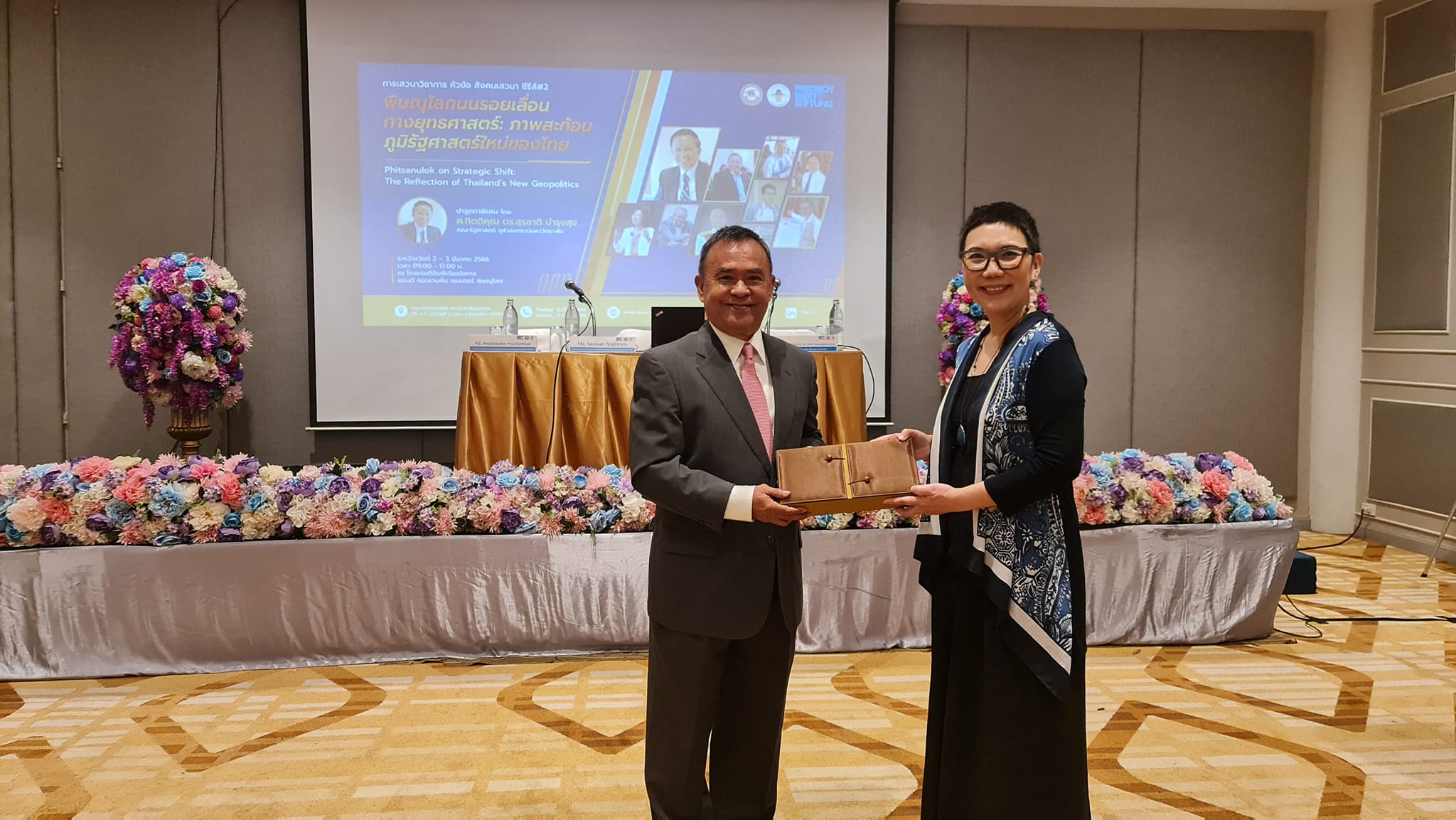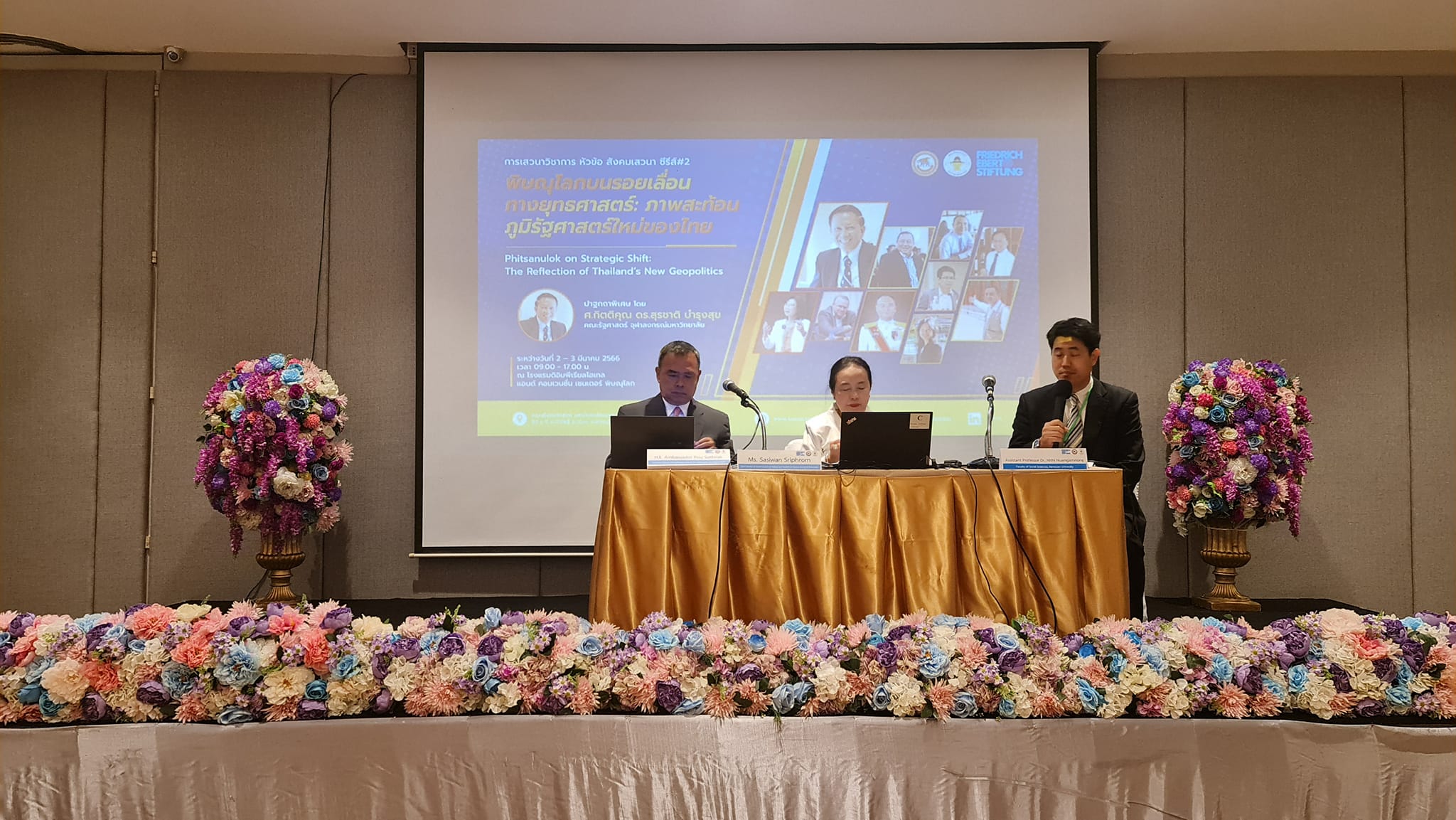\H.E. Ambassador Pou Sothirak, Executive Director of the Cambodian Institute for Cooperation and Peace was invited by Ms. Vesna Rodic, Resident Director of Friedrich Ebert Stiftung, Thailand Office, and Professor Dr. Napisa Waitoolkiat, Dean of Faculty of Social Sciences, Naresuan University to take part in the Social Science Talk Series under the theme of Phitsanulok on a Strategic Shift: The Reflection of Thailand’s New Geopolitics in this beautiful city of Phitsanulok from 2-3 March 2023.
This conference was set up to discuss such issues related to (1) the Role of Phitsanulok under the Context of Economic, Social, and Security Development in the Greater Mekong Subregion; (2) Geo-Politics and Geo-Strategic in Southeast Asia and Thailand – Opportunities and Challenges; (3) Environment and Disaster Management; (4) New Geo-Strategic Era in the Greater Mekong Subregion.
Amb. Pou Sothirak was tasked to give a talk on New Geo-Strategic Era in the Greater Mekong Subregion. He shared his thoughts as follows.
In recent years, the Greater Mekong Subregion has experienced an unprecedented flourishing of bilateral and multilateral activity and the establishment of myriad new institutions seeking to resolve the wide range of challenges confronting the subregion while supporting its growth, sustainable development, human security, and – most importantly – the long-term sustainability of the Mekong River.
External powers engage Mekong countries with certain similarities in terms of infrastructure advancement, trade and investment plan, poverty reduction, and integration; however, they differ in the modeling of their development policies as each of these strategies functions separately with the individual Mekong countries in an uncoordinated way. This tendency tends to spawn mutual distrust and misunderstanding, and the breeding of greater animosity which in turn makes Mekong regional-wide cooperation nearly impossible. Without appropriate coordination, competition is sure to increase and frictions cause uneasiness among states which might lead to conflicts that threaten the peace and security of this region.
To grasp the complexity involving the emergence of a new geostrategic arena in the Great Mekong Subregion, we must understand the geostrategic interest of both the US and China in the GMS.
The effects of Sino-U.S. rivalry have crept into the subregion, with Beijing and Washington stepping up their engagement with the riparian countries. The Mekong subregion is a crucial area for the China-led initiative called Langcan Mekong Cooperation and a key element of the US-led Mekong – US Partnership initiative where the five riparian states must consolidate and expand the bilateral and regional relationship with these two powers so as to maintain peace, security and enhancing prosperity in the sub-region.
No doubt, the GMS is now emerged as a new critical testing ground for China and US to wield their influence. China’s geopolitical ambitions and the U.S. strategic posture in the region will play a crucial role in shaping the New Geo-Strategic Era in the Greater Mekong Subregion.
However, despite this US and China rivalry, there is a “win-win” opportunity for CLMTV countries to strike a balance in engaging both China and the US to support the peaceful development of the subregion by encouraging them to play a more active and positive role in water resources management and cooperation in the region, making their growing role in the GMS’s regional affairs co-exist genially and peacefully in the new geostrategic era in the Greater Mekong Subregion.



